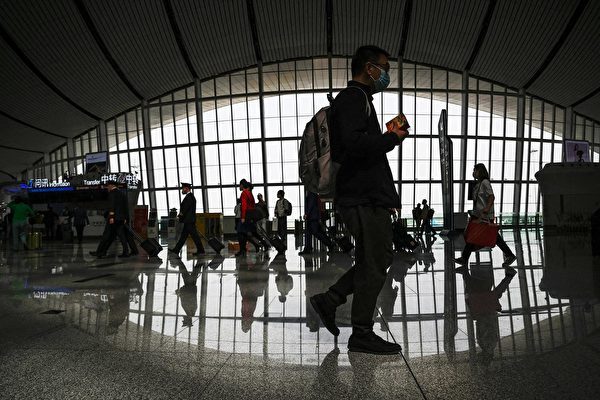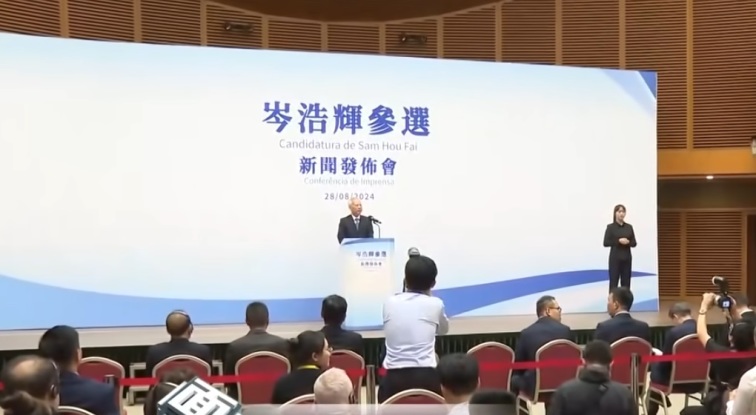On October 16, 2024, a school cafeteria in Kunming, Yunnan, reportedly served students "rotten meat," with parents alleging that "the entire tray of meat was spoiled" (video screenshot).
People News - Corruption within the Chinese Communist Party (CCP) has reached extreme levels, influencing all aspects of society. With a corrupt leadership at the top, the rot spreads downward, creating an environment rife with fake food products, counterfeit drugs, toxic vaccines, and other scandals. Although the CCP periodically launches "crackdowns," these measures address symptoms rather than root causes. As long as the CCP retains power, corruption will persist, leading to frequent societal crises that jeopardize public health and safety.
According to a report from the CCP's National Supervisory Commission, since the 20th Party Congress, authorities have investigated 768,000 cases of misconduct and corruption, resulting in disciplinary actions against 628,000 individuals. The investigations have primarily focused on issues such as kickbacks in "school meal" programs, embezzlement of cafeteria funds, and healthcare insurance fraud. The commission announced plans to target lower-level corruption in counties and below over the next two years.
On December 22, the 13th meeting of the Standing Committee of the 14th National People’s Congress convened in Beijing for its second plenary session. The National Supervisory Commission submitted a report detailing efforts to address misconduct and corruption affecting the public. Since the 20th Congress, 768,000 cases were investigated, and 20,000 individuals were referred to prosecutors.
The report identified eight primary areas of social corruption, including: Mismanagement of "school meal" programs. Misuse of rural collective resources. Healthcare sector malpractices. Workplace safety incidents. Violations of the rights of vulnerable groups. Protection rackets and corruption within criminal networks. Disruptions to local economic activities. Bureaucratic formalism and inefficiency.
The report noted that the commission had conducted the first nationwide survey of school cafeterias and meal provision in primary and secondary schools, investigating 38,000 cases of embezzlement, procurement manipulation, and kickbacks, leading to disciplinary action against 23,000 individuals.
In the healthcare sector, the report highlighted efforts to combat corruption such as fraudulent insurance claims and bribery. Nationwide, average medical expenses per hospitalization in public hospitals above tier-2 decreased by 5.7% in 2024 compared to 2022, while average inpatient medication costs dropped by 12.1%.
This year, the National Supervisory Commission initiated a nationwide campaign targeting key corruption issues, directly handling 2,633 major cases. These efforts included two nationwide crackdowns: one focused on "school meal" corruption and the other on mismanagement of rural collective assets, along with 15 specific projects such as addressing social insurance fund fraud.
An Economic Information Daily report by Xinhua highlighted several recent school cafeteria corruption scandals in China, including cases in Hainan and Chengdu where principals abused their positions to secure kickbacks from contractors. These "micro-corruption" cases are highly concealed and difficult to monitor, often escaping scrutiny.
On January 5, 2024, the CCP’s official military publication, PLA Daily, published a commentary titled "Integrating Strict Management and Support into Daily Education and Reminders for Officers and Soldiers," claiming that "the military’s anti-corruption efforts have achieved overwhelming success and are being fully consolidated."
However, just three days later, on January 8, CCP leader Xi Jinping admitted at a plenary meeting of the Central Commission for Discipline Inspection that "despite a decade of persistent anti-corruption efforts during the new era, and the achievement of overwhelming success and consolidation, the situation remains grim and complex."
The CCP has repeatedly declared "decisive victories" in its anti-corruption campaigns. But does this not indirectly acknowledge that these efforts have ultimately failed time and again? As long as the CCP exists, corruption will persist—because the CCP itself is the root cause of all corruption.











News magazine bootstrap themes!
I like this themes, fast loading and look profesional
Thank you Carlos!
You're welcome!
Please support me with give positive rating!
Yes Sure!